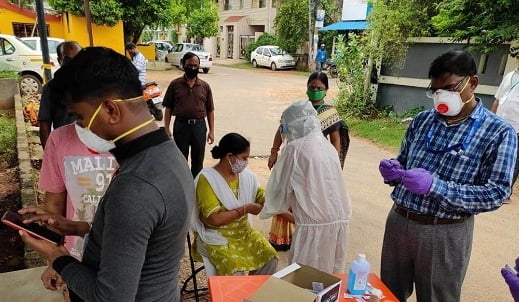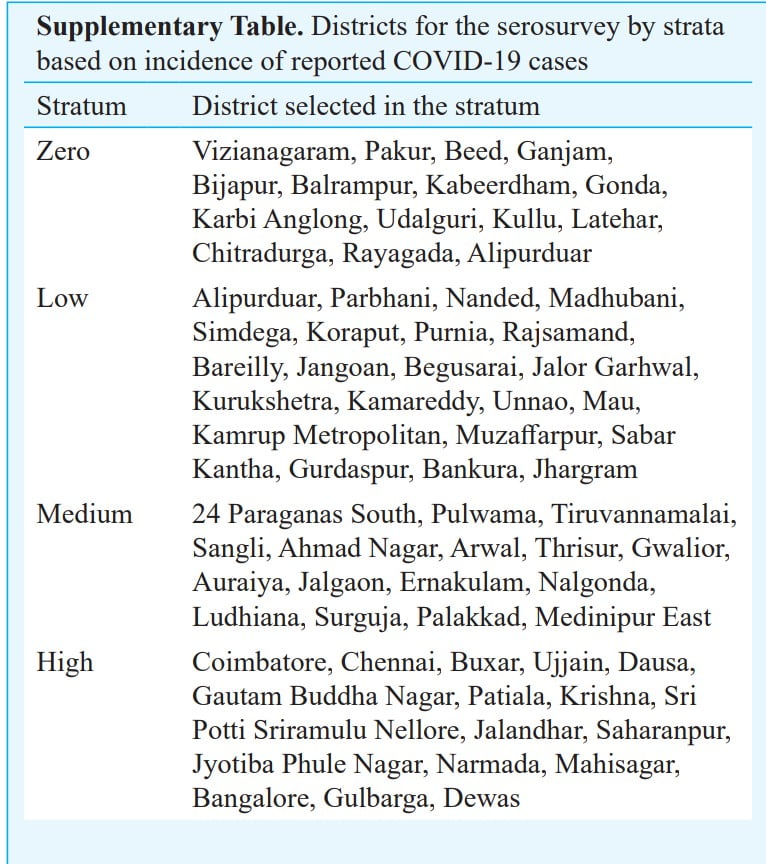Over 64 Lakh Indians Develop Antibodies Against COVID-19: ICMR’s Sero-Survey

Bhubaneswar: Indian Council of Medical Research (ICMR) on Thursday released the findings of the first round of the national sero-survey conducted in May and June to estimate the prevalence of SARS-CoV-2 infection among adult population of India.
According to the findings, 64,68,388 people in India have developed antibodies against COVID-19 after getting infected by the early May.
Here are the key results of the findings:
- Males, living in urban slums and occupation with high risk of exposure to potentially infected persons were associated with seropositivity.
- From the overall adjusted seroprevalence of 0.73 percent and reported number of COVID-19 cases, it was estimated that ‘for every RT-PCR confirmed case of COVID-19, there were 82-130 infections in India’.
- The survey indicates that the overall seroprevalence in India was low, with less than one percent of the adult population exposed to novel coronavirus by mid May 2020.
- The low prevalence observed in most districts indicate that India is in early phase of the epidemic and the majority of the Indian population is still susceptible to SARS-CoV-2 infection.
- The seropositivity was highest in the age-group of 18-45 years (43.3), followed by those between 46-60 years (39.5 ) and the lowest seropositivity was detected in those aged above 60 (17.2).
Also, the survey findings pointed out that the seropositivity was highest at 69.4 per cent in the rural areas (villages) while in the urban slums it was 15.9 per cent and in urban non-slums it was recorded at 14.6 per cent. - For the survey, a total of 30,283 households were visited from 700 clusters in 70 districts across four strata: Zero cases- 15 districts, Low cases- 22 districts, Medium cases – 16, High cases – 17 districts.

- COVID seropositivity being detected in the districts with zero cases could be on account of low testing as well as poor access to the testing laboratories led to under-detection of COVID-19 cases in these districts.
- The present findings of seropositivity in the strata of districts with zero to low incidence of COVID-19 cases underscores the need to strengthen surveillance and augment the testing of suspected cases in these areas.
- About one-fourth (25.9 percent) of the surveyed clusters were from urban areas.
- A total of 28,000 individuals consented to participate Nearly half (48.5 percent) of the survey participants were aged between 18 and 45 years and 51.5 percent (14,390) were female.
- In all, 18.7 per cent of the participants had an occupation with a high risk of exposure to potentially infected persons.

Comments are closed.